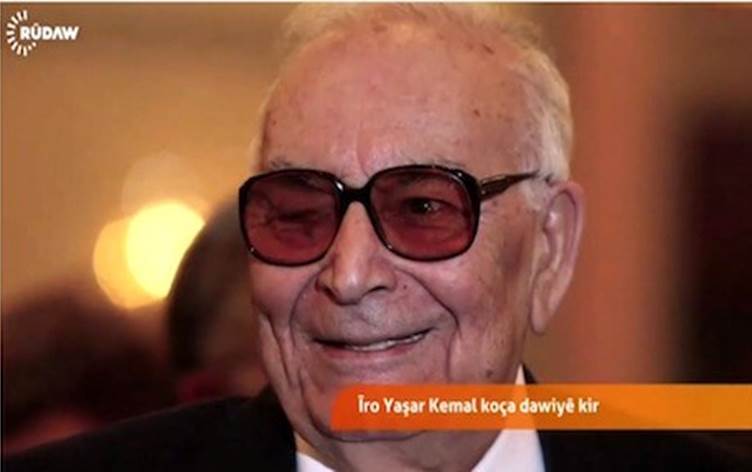ANKARA, Turkey – Yasar Kemal, the celebrated Kurdish writer who passed away in February, is being honored at Ankara’s annual short story festival that opened today.
Organizers said that the 15th edition of the five-day Ankara International Short Story Days is dedicated to Kemal, who died at an Istanbul hospital on February 28. He was in his early 90s.
Kemal and his short stories and novels will be discussed at a special program at Ankara University by Turkish author Ahmed Say.
Last year’s edition of the literary festival was dedicated to the late Colombian novelist and short story writer Gabriel Garcia Marquez.
Kemal, who was a tireless campaigner for Kurdish rights throughout his life, was one of the greatest writers in Turkey, penning more than two dozen novels alone.
He penned all his novels in Turkish, but his writing always reflected his Kurdish identity and the hardships his people faced in Turkey. His works have been translated into 40 languages, including Kurdish.
In its long obituary to Kemal, the New York Times called him “a master storyteller who repeatedly clashed with the Turkish state while emerging as his country’s first novelist of global stature.”
His best-known work, Memed, My Hawk, translated into Kurdish as Hamadok and published in1955, earned him a nomination for the 1973 Nobel Prize in literature.
In his last speech, Kemal had said that his books would transform any reader into “an enemy of war.”
Kemal’s stories are based on lives and characters from his own village and countryside, depicting the struggle of the poor against powerful oppressors.
Memed, My Hawk, which depicts a bandit hero who takes revenge on a local cruel overlord, can be found on the shelves of many Kurdish homes, including in the Kurdistan Region.



Comments
Rudaw moderates all comments submitted on our website. We welcome comments which are relevant to the article and encourage further discussion about the issues that matter to you. We also welcome constructive criticism about Rudaw.
To be approved for publication, however, your comments must meet our community guidelines.
We will not tolerate the following: profanity, threats, personal attacks, vulgarity, abuse (such as sexism, racism, homophobia or xenophobia), or commercial or personal promotion.
Comments that do not meet our guidelines will be rejected. Comments are not edited – they are either approved or rejected.
Post a comment